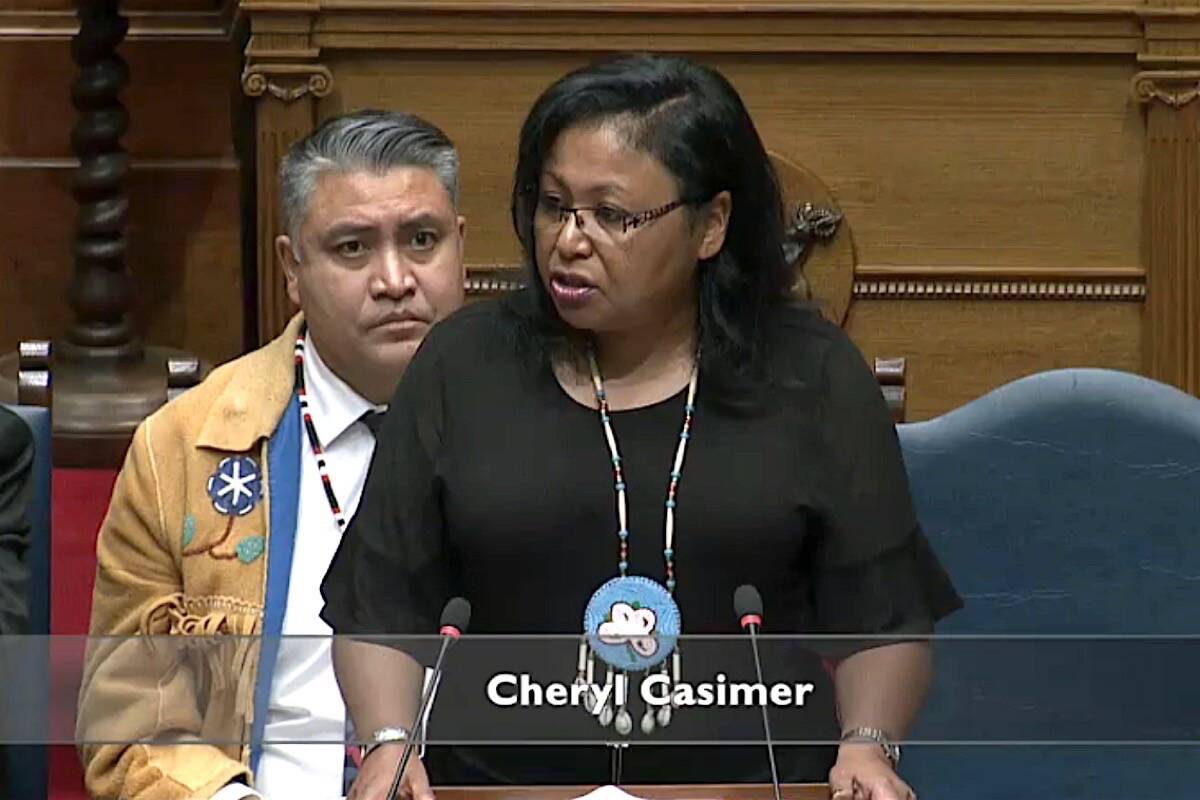With hundreds of gas pipeline workers trapped behind illegal road blockades in the Smithers area and protesters continuing to disrupt logging on Vancouver Island, the B.C. government is continuing its long project of amending its laws to conform to the UN Declaration on the Rights of Indigenous Peoples.
In both conflicts, Indigenous protesters assisted by outside activists are defying the wishes of the elected Indigenous leaders. Coastal GasLink officials said Thursday the RCMP has begun enforcing a B.C. Supreme Court injunction at the Morice River crossing, a key point in the half-completed pipeline to supply northeastern B.C. natural gas to an export facility under construction at Kitimat.
On Vancouver Island, the Huu-ay-aht First Nations are convening a summit on old-growth preservation for next week with leaders of 25 Indigenous nations. The Huu-ay-aht, Dididaht and Pacheedaht First Nations issued a declaration in June that they are taking back control over their traditional territories, starting with logging deferral areas in the Walbran and Fairy Creek watersheds that were immediately adopted by the B.C. government. Protests and roadblocks continued over the repeated objections of the Pacheedaht leadership.
RELATED: First Nations tell B.C. to pause old-growth logging
RELATED: RCMP deploy to Houston in response to blockade
In the legislature, Attorney General David Eby introduced two bills to continue the slow process of changing B.C. laws. One adds Indigenous identity as a protected ground under the B.C. Human Rights Code, and the other clarifies that all provincial laws uphold the rights of Indigenous people under section 35 of the Canadian Constitution.
Cheryl Casimer, a Ktunaxa Nation member serving on the First Nations Summit political executive, said the changes are “a critical step” in efforts to deal with racism and continue the job of adopting Indigenous rights in all provincial statutes.
Terry Teegee, B.C. regional chief for the Assembly of First Nations, also endorsed the changes.
“I am pleased that we are now beginning to see movement on the immense work that is underway to transform B.C.’s laws, regulations and policies so that they align with the UN Declaration on the Rights of Indigenous Peoples,” Teegee said, adding that they will “build a working pathway and create further advancements toward relationship-building, trust and reconciliation.”
@tomfletcherbc
tfletcher@blackpress.ca
Like us on Facebook and follow us on Twitter.

